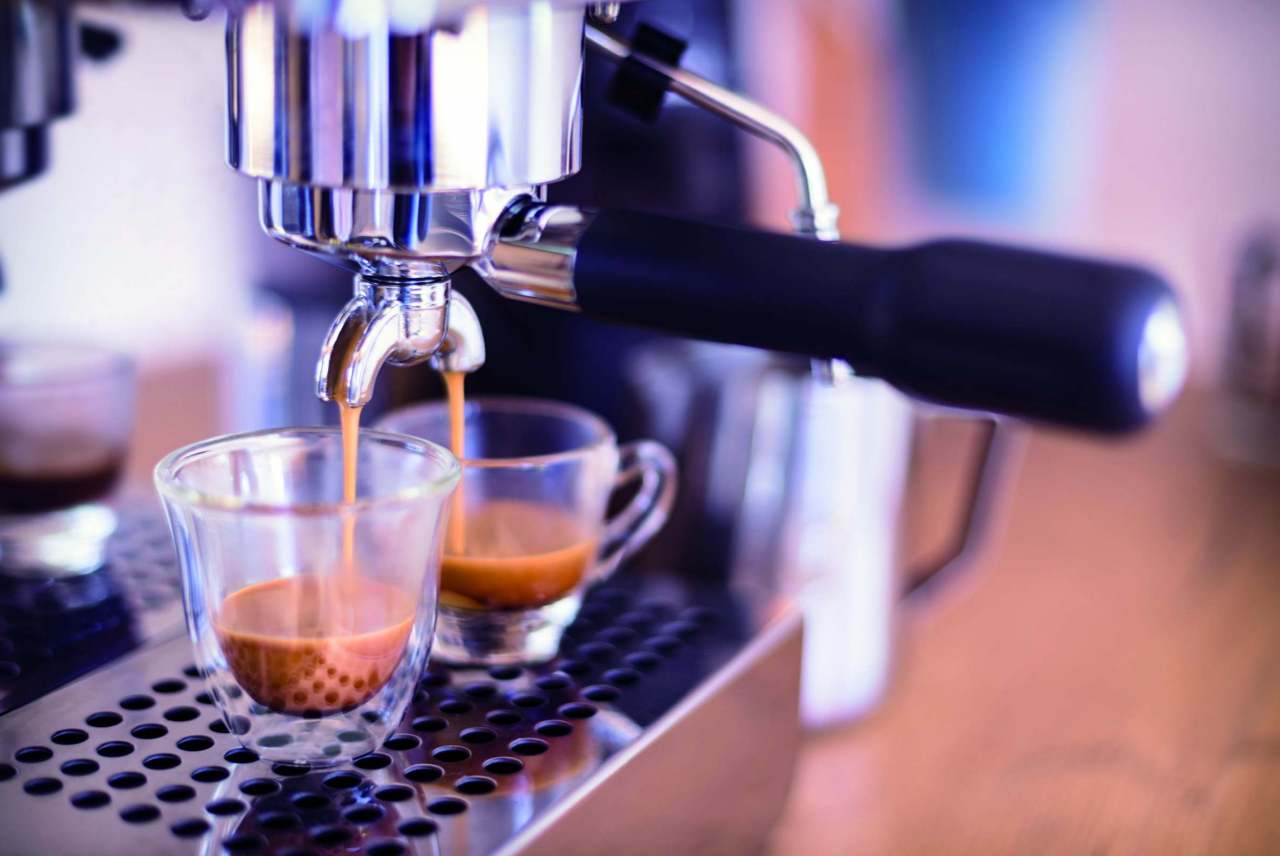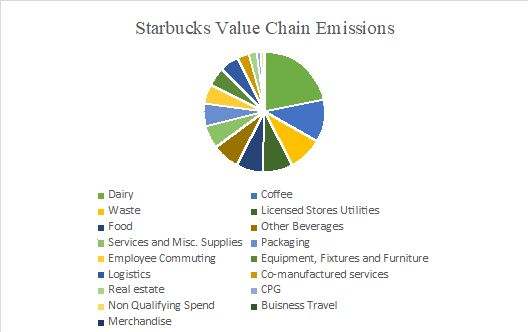A report on carbon management and reporting at nine UK coffee shop chains.
In March 2021 Ethical Consumer collaborated with Sorcha Bowles, an MSc student on the University of Glasgow's Earth Futures course, to compile a ranking of carbon management and reporting at nine UK coffee shops
May 2021
Coffee shops are extremely popular with over 25,000 outlets existing in the UK in 2018 (1). Whilst coffee shops, along with the rest of the high-street have taken a hit during the coronavirus pandemic (4), most large chains have been able to provide takeaway and we can anticipate coffee shops regaining their popularity post Covid-19.
As public awareness of climate change has increased, some coffee shop chains have been forced to acknowledge consumer demands for more sustainable products and services. This has led to shift towards a ‘greener’ image for many brands, often characterised by reusable cups and plastic alternatives which, in the grand scheme of things, do little towards reducing greenhouse gas emissions.
Ethical Consumer has recently embarked on a new project to understand how seriously all companies are taking the climate emergency. We are looking for publicly available data which shows that companies:
(a) have set targets for carbon reduction in line with international agreements,
(b) are reporting annually on what their emissions actually are, and
(c) have a plausible plan for how they meet the targets, including reporting on measures they’ve already taken.
We set out to find out what some of the UK's Coffee chains were doing to address and reduce their greenhouse gas emissions. Each company researched received an Ethical Consumer rating of best, middle or worst for carbon management and reporting, the results are summarised in the table below.
Our rating results show a need to seriously question why some of the UKs biggest coffee chains are failing in the carbon reduction department. The worst in terms of reporting was Caffè Ritazza, the only company with no mention at all of the environment on its website. No company received a best rating.
| Company | Rating |
| - none - | Best |
| Starbucks | Middle |
| Greggs | Middle |
| AMT | Worst |
| Caffe Ritazza | Worst |
| Coffee Republic | Worst |
| Costa | Worst |
| Esquires Coffee | Worst |
| Nero | Worst |
| Pret A Manger | Worst |
Hiding behind packaging?
Five out of the nine companies: Pret, Café Nero, Costa, Greggs and Starbucks, discussed either plastic reduction, recycling packaging or packaging made from recycled materials. Whilst this is an important issue in its own right, packaging contributes very little to the carbon footprint of coffee shops. In some cases, for example Pret, the conversations around climate change and the environment were governed by discussions around reducing plastic.
Similarly, a dominant theme on the company websites was the strong emphasis on reusable coffee cups. Many companies offered their own branded reusable cup and Pret offered a reusable cup discount. Again, while this may have a positive impact on issues such as litter and plastic water pollution, it was often framed as a climate change prevention measure. But some research has claimed that, with regards to greenhouse gas emissions, there is not much difference between reusable and single use coffee cups [3].
It is much easier for companies to hide behind paper straws, reusable travel mugs or recycled plastics than to actually confront and reduce their biggest carbon contributors which, as we can see below, are in the use of dairy products and in their wider supply chains. If these coffee shops are serious about reducing their greenhouse gas emissions, their attitudes need to change.
Milk
Starbucks report dairy as the biggest contributor to their carbon footprint. It could be assumed then that for all the companies researched, apart from perhaps Greggs, that dairy is also up there as one of their worst offenders. A latte made with cow’s milk can have a carbon footprint of up to 0.55kg of CO2e. To put this into perspective, the average carbon footprint of a person in the UK is about 33kg of CO2e a day (including all imported goods, and the carbon expended by the government on our behalf), meaning just one cup of coffee made with cow’s milk could make up as much as 1.7% of your daily carbon footprint.
Costa, Pret, Starbucks, Nero, AMT, Esquires and Greggs all mention providing plant based milk alternatives as a way of cutting their carbon, and all plant based milks do have significantly lower carbon footprints than cows milk (5). But Starbucks, Nero, Esquires and Costa charge extra for all plant milks apart from soya, which isn’t exactly doing all they can to encourage their customers to make the switch.
Currently we probably do not live in a world where “no dairy” is currently a realistic option for large coffee chains, but there are many more ways that companies could be encouraging their consumers to give plant based milks a try. We saw AMT Coffee, for example, advertise a promotion of a £1 vegan biscuit with any plant based drink purchased. Coffee shops could also consider providing free plant based drink samples to make the transition from dairy seem like less of a jump.
The companies analysed also did not appear to make the most of the variety of plant based milks on offer, - they could go beyond the standard soya, oat or almond alternatives to include milks such a pea or rice,
Coffee shops could also pay attention to things that increase their plant based milk sales, keeping track of how their customers interact with the options and recording improvements in sales in order to make sure their plant based milks are having the best impact possible.
Looking down the supply chain
Starbucks and Greggs were the only companies that acknowledged how much of their greenhouse gas emissions were coming from their value chains, with Starbucks providing a more detailed report as illustrated in the pie chart below.
Starbucks reported that it estimated that 96% of its carbon footprint was associated with its value chain...
This highlights how far behind the other companies we researched were, as they failed to provide detail or in some cases even mention their value chain emissions at all.

